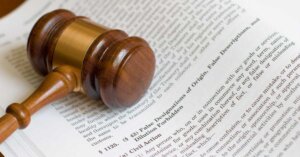Orange County – The U.S. Supreme Court announced today that it will decide whether isolated human genes are patentable, a decision that will have far-reaching consequences for biotechnology companies, medical researchers, and consumers of medical services.
Myriad Genetics holds patents for the BRCA1 and BRCA2 genes, which are being challenged by the Association for Molecular Pathology. The Association for Molecular Pathology claims that isolated DNA, genetic coding removed from the body and separated from other material, is a product of nature making it ineligible for patent protection.
In addition to its claim that DNA is a product of nature, the association for Molecular Pathology claims the patents prohibit clinical testing of the genes and restrict patients’ access to medical care.
“Myriad and other gene patent holders have gained the right to exclude the rest of the scientific community from examining the naturally occurring genes of every person in the United States,” the group argued in its appeal, filed by the American Civil Liberties Union.
In response, Myriad Genetics claims that companies have been patenting generic material for over 30 years. Without the promise of patent protection, the company claims it would not be able to convince investors to fund its research, which saves countless lives.
“Myriad devoted more than 17 years and $500 million to develop its BRACAnalysis test. This case has great importance for the hundreds of millions of patients whose lives are saved and enhanced by the life science industry’s products,” said Peter Meldrum, President and CEO of Myriad Genetics. Myriad’s patented BRACAnalysis test looks for mutations BRCA1 and BRCA2, which are linked to breast and ovarian cancer. Women who test positive on the BRACAnalysis have an 82 percent increased risk of breast cancer and 44 percent increased risk of ovarian cancer.
The Federal Circuit Court of Appeals ruled in favor of Myriad, claiming that the composition of matter claims by Myriad for BRCA 1 and BRCA2 are valid under Sec 101 of the United States Patent Act. “The isolated DNA molecules before us are not found in nature,” Circuit Judge Alan Lourie wrote. “They are obtained in the laboratory and are man-made, the product of human ingenuity. While they are prepared from products of nature, so is every other composition of matter.” The Supreme Court is expected to hear arguments in March and a decision is expected by June.





